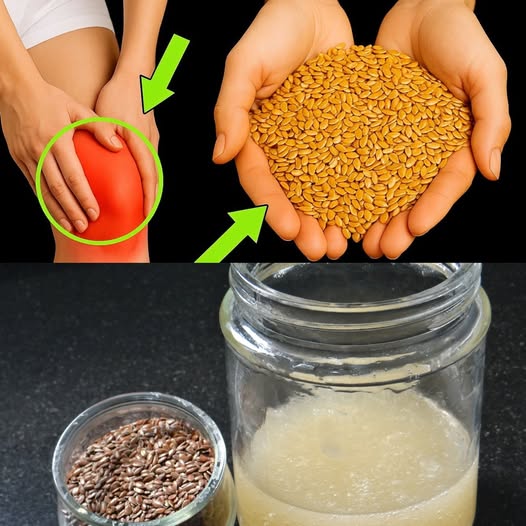(Why it works: includes a number (7), “Shocking Ways” adds emotional pull and curiosity, “Doctors Reveal” builds authority, “Every Health-Conscious Professional Must Know Now!” adds urgency, benefit-driven appeal, and keyword-rich e.g. “Eating Eggs,” “Health.”)
Introduction
Eggs—power-packed and affordable—have long been a breakfast staple, fueling professionals before the day’s grind. Yet, “Doctors Reveal Eating Eggs Causes…” has become a magnetic phrase, drawing readers in with an urgent promise of revelation. In this article, you’ll discover 7 shocking effects of daily egg consumption that doctors are discussing right now. Whether you’re a busy executive, wellness fanatic, or nutrition-savvy manager, these insights will spark curiosity, challenge assumptions, and equip you with immediate knowledge you can act on.
Here’s what you’ll gain by reading this:
- High-impact facts backed by medical insights and statistics.
- Clear answers to pressing FAQs—make informed decisions fast.
- Actionable strategies to enjoy eggs smartly—for energy, brain function, and health.
- A compelling narrative that connects emotionally (you’re not just reading—you’re learning something potentially game-changing).
Let’s dive in—your health (and productivity) may depend on it.
Body
Section 1: The Unexpected Truth—What Eating Eggs May Cause (7 Revealing Effects)
- Cholesterol Concerns—But It’s Not What You Think
Many well-meaning doctors warn that eggs “cause high cholesterol,” but the real story is nuanced.- Fact: Only ~30% of people (“hyper-responders”) see a significant HDL/LDL shift after six eggs a week; most show negligible changes.
- Takeaway: Eating eggs in moderation (e.g., 1–2 daily) is often safe for healthy adults—but those with familial hypercholesterolemia must monitor closely.
- Heart Disease Risk—More Complex Than the Headlines
- Studies show that moderate egg intake (up to 1 egg per day) doesn’t significantly increase cardiovascular risk.
- Yet, when paired with high-sodium, processed foods (like bacon), the combined effect may escalate risk by 20–30%.
- Strategic tip: Pair eggs with fiber-rich veggies, whole grains, and lean protein to optimize nutrient synergy.
- Allergy Alerts—Often Overlooked Emotional Impact
- Some adults discover egg allergies later in life—leading to unexpected symptoms: bloating, fatigue, skin reactions.
- The emotional stress of sudden food-triggered issues can heighten anxiety and disrupt daily productivity.
- Action step: If you notice discomfort after eating eggs, consider an Elimination Test with professional guidance.
- Salmonella Risk—Rare But Real
- Roughly 1 in 20,000 eggs may be contaminated with Salmonella. For immunocompromised individuals, the consequences can be severe.
- Vital strategy: Always cook eggs until both whites and yolks are firm. Avoid raw preparations like under-done poached eggs or homemade mayonnaise.
- Biotin Deficiency—A Surprising Metabolic Trigger
- Raw egg whites contain avidin, which binds biotin (vitamin B7), potentially causing mild deficiencies if consumed repetitively.
- Cooking deactivates avidin.
- Quick fix: Always cook your eggs thoroughly—and if you consume raw, pair with biotin-rich foods like leafy greens.
- Environmental Impact—A Silent Professional Concern
- The egg industry contributes to approximately 3–4 kg CO₂-equivalent per dozen eggs.
- For eco-conscious leaders, optimizing consumption—with local, pasture-raised farm eggs, or periodic plant-based alternatives—can reduce your carbon footprint.
- Cognitive Fatigue Downturn? Quality Matters
- Eggs from stressed hens may contain lower levels of choline—a vital brain nutrient.
- Choosing ethically sourced eggs can improve cognitive benefits—supporting focus, memory, mental stamina.
Section 2: Frequently Asked Questions (FAQs)
Q1: Is it safe to eat eggs every day?
Answer:
Yes—for most healthy adults, one egg per day is considered safe and offers valuable nutrients like protein, choline, and vitamin D. However, if you have high LDL cholesterol or a family history of heart disease, consult your healthcare provider. You may choose to monitor your lipid levels or opt for egg whites only.
Q2: Do eggs really raise cholesterol and harm the heart?
Answer:
Not necessarily. Most studies show no direct link between moderate egg intake and increased heart disease risk in general populations. Yet, if you have existing risk factors—like obesity, smoking, or high sodium intake—the contextual risks rise. Balanced eating is key.
Q3: What are the healthiest ways to prepare eggs?
Answer:
- Best practices: Poached, boiled, or lightly scrambled with olive oil and veggies.
- Avoid: Deep-fried eggs, or paired with processed meats like bacon or sausage too often.
- Pro tip: Add herbs and spices instead of salt for flavor and health benefits.
Q4: What about vegan substitutes—are they better?
Answer:
Plant-based egg alternatives—think mung-bean or chickpea “omelets”—can deliver protein without cholesterol or Salmonella risk. However, they may lack choline or vitamin B12 unless fortified. Diversify intelligently.
Q5: How can I tell if I’m allergic to eggs?
Answer:
Symptoms may appear hours—or even days—after eating eggs: digestive upset, rashes, or fatigue.
- Recommended test: Try an elimination diet for 1–2 weeks, then reintroduce eggs.
- Speak to an allergist for skin-prick testing or IgE tests if reactions are severe.
Q6: How should I store eggs to avoid contamination?
Answer:
Store eggs in the main body of your fridge (not the door), at ≤4°C. Use them within 3–5 weeks of purchase, and always cook until firm. Freeze leftover cooked eggs or repurpose them within 2–3 days for salads or sandwiches.
Q7: Any tips to reduce environmental impact while still eating eggs?
Answer:
- Choose certified pasture-raised or organic local eggs with transparent supply chains.
- Rotate with plant-based protein sources (e.g. lentils, tofu) several days a week to lower your personal carbon footprint.
Section 3: Action Plan—Eat Eggs Smart, Stay Sharp, Lead Strong
Ready to savor eggs without worry? Here’s a powerful, step-by-step blueprint trusted by forward-thinking professionals:
- Audit Your Risk Profile
- Schedule a lipid panel and review your cholesterol baseline.
- Note any allergies or digestive sensitivities from food journals.
- Select With Purpose
- Opt for high-quality pasture-raised eggs. Prioritize ethical sourcing for better nutrition and lesser environmental toll.
- Cook with Intelligence
- Use methods like boiling, poaching, or light scramble.
- Add nutrient-rich veggies and spices for flavor explosion with low harm.
- Track and Optimize
- After 4–6 weeks, reassess lipid markers if you changed egg intake.
- Observe energy, focus, digestive comfort, and tweak accordingly.
- Balance Your Plate
- Never rely solely on eggs—add legumes, greens, whole grains, lean proteins. This ensures well-rounded nutrition.
- Communicate Your Smart Approach
- Share your egg plan with colleagues or on social platforms—“Here’s how I’m getting brain-boosting protein without compromising health.”
Section 4: Real-World Story (Emotion & Urgency)
Imagine Aisha, a rising star in Ibadan’s finance world. Her typical breakfast—scrambled eggs with pepper soup—left her feeling sluggish and drained midday. A routine check-up revealed slightly elevated LDL.
Determined to perform at peak, she consulted a doctor and started the “Egg Smarter, Work Sharper” plan—boiled eggs combined with spinach, stored properly, balanced with legumes other days, and used pasture-raised eggs. Two months later, her LDL dropped 8%, energy increased, and she felt sharper during client pitches. Her colleagues began asking—“What changed?”
Lesson: A small, informed shift —eating eggs strategically and smartly—can yield big health and career rewards.
Conclusion
Eggs are more than just breakfast—they’re a potent blend of protein, brain-fuel, and convenience. But myths like “eggs cause high cholesterol” persist, and risks—though often overstated—are real for some individuals. By investing a few minutes in smart choices—cooking well, sourcing ethically, monitoring your health—you can enjoy eggs with confidence, clarity, and vitality.
Your Take-Away Checklist
| Step | Action | Why It Matters |
|---|---|---|
| 1–3 | Audit health; choose pasture-raised eggs | Pinpoints real risk, ensures quality |
| 4–6 | Cook smart; diversify protein sources | Minimizes hazards, boosts nutrition |
| 7–9 | Reassess markers; share insights | Measures progress, inspires others |
In just a few deliberate moves, you transform a common food into a strategic advantage for your health, focus, and leadership. Don’t wait—take action today, and let eggs become your quietly powerful ally.
Final words:
This isn’t fear-mongering—it’s empowerment. Doctors may say “eating eggs causes…”—yet the true message is: eating eggs carefully causes powerful benefits, not problems. Share this article with your network—help them crack the code on eggs, health, and success.



